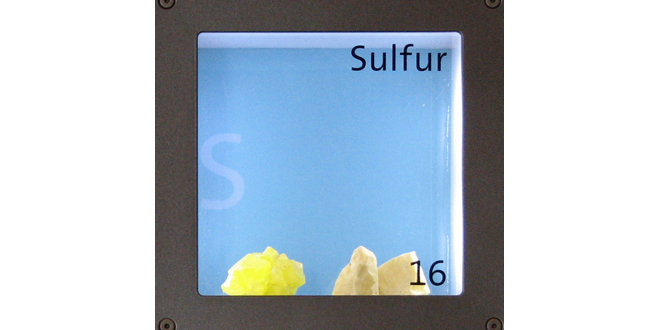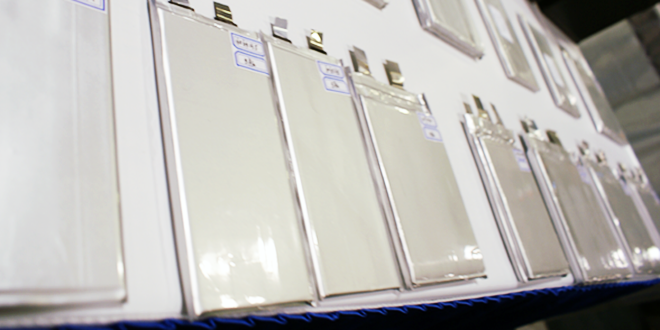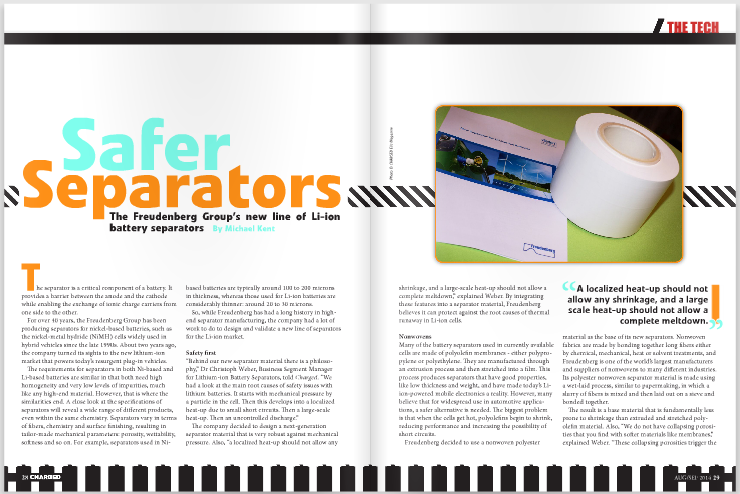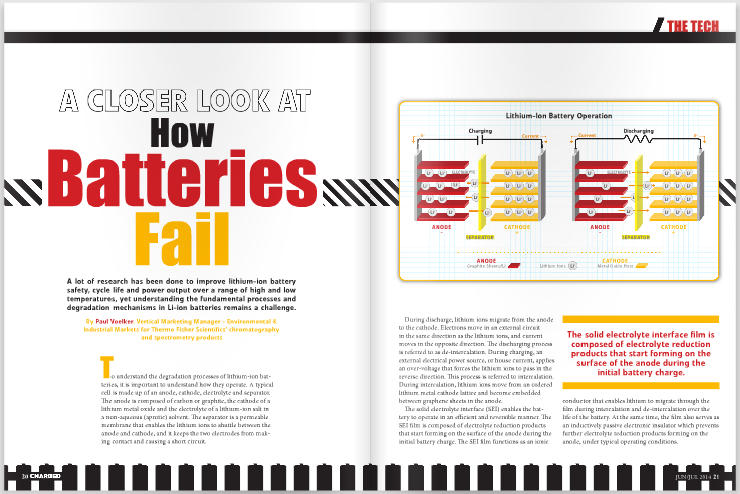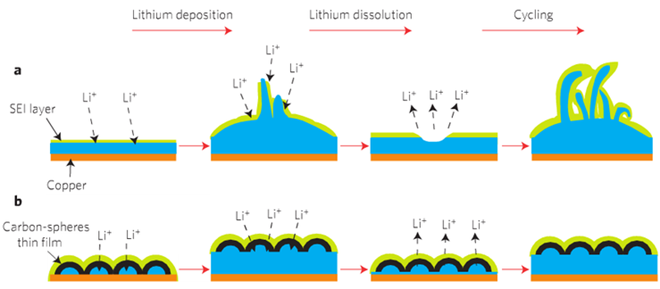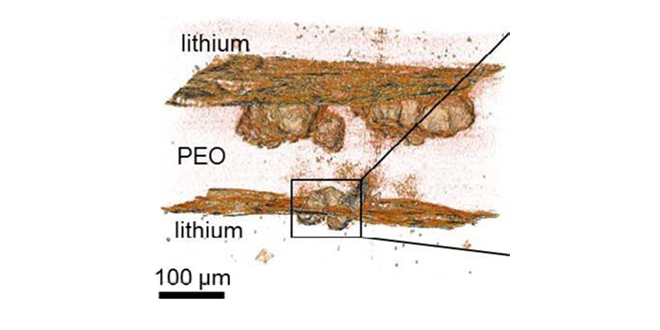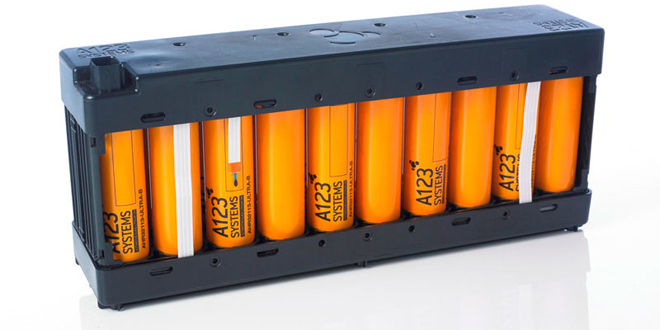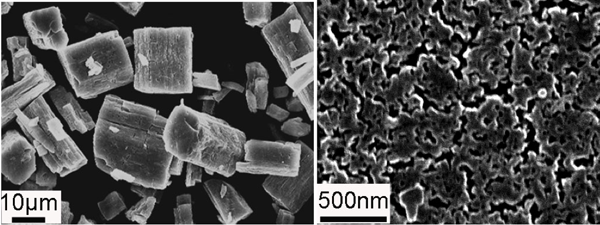A team from the University of Waterloo in Canada and BASF has developed a way to stabilize cathodes in lithium-sulfur batteries, significantly improving performance and cycle life. Li-S batteries offer high theoretical energy density and low cost, due to the high natural abundance of sulfur. However, the insulating nature of sulfur and lithium sulfides requires… Read more »
Search Results Found For: "dendrite"
Canada bans shipments of lithium metal batteries on passenger flights
The Canadian Transport Ministry has officially banned the transport of lithium metal batteries as cargo on passenger flights, bringing its regulations into line with a ban adopted by the International Civil Aviation Organization in 2014 (the US has already instituted a ban). The new rule does not apply to lithium-ion batteries, or to lithium metal… Read more »
Freudenberg Group’s new line of Li-ion battery separators
The separator is a critical component of a battery. It provides a barrier between the anode and the cathode while enabling the exchange of ionic charge carriers from one side to the other. For over 40 years, the Freudenberg Group has been producing separators for nickel-based batteries, such as the nickel-metal hydride (NiMH) cells widely… Read more »
Fraunhofer Institute presents November workshop on lithium-sulfur batteries
The Fraunhofer Institute will hold its third annual workshop on lithium-sulfur batteries in Dresden, Germany, on November 12 and 13. Lithium-sulfur is a leading contender for the battery chemistry of the future, and Fraunhofer believes that novel materials such as nanostructured carbon/sulfur composite cathodes, solid electrolytes and alloy-based anodes will significantly enhance performance. Dr Oliver… Read more »
A closer look at how batteries fail
A lot of research has been done to improve lithium-ion battery safety, cycle life and power output over a range of high and low temperatures, yet understanding the fundamental processes and degradation mechanisms in Li-ion batteries remains a challenge. To understand the degradation processes of lithium-ion batteries, it is important to understand how they operate…. Read more »
Stanford team develops stable lithium anode
Are the knights of nanotechnology closing in on the Grail at last? A team of researchers at Stanford University claim that they are, and have chronicled their deeds in the journal Nature Nanotechnology. The valiant engineers report that they have designed a pure lithium anode. “Of all the materials that one might use in an… Read more »
Berkeley Lab researchers get to the root of the lithium anode problem
In the quest for higher energy density, the use of lithium metal anodes would seem to be a promising approach, if it weren’t for those doggone dendrites. Dendrites are microscopic fibers of lithium, which sprout, tree-like, from the surface of the lithium electrode and spread through the electrolyte until they reach the other electrode, possibly… Read more »
A123 and SolidEnergy work together on safer, 800 Wh/kg battery chemistry
A123 Venture Technologies, the R&D subsidiary of the mercurial manufacturer of EV batteries, has announced a strategic partnership with MIT startup SolidEnergy. SolidEnergy’s solid electrolyte technology enables the use of lithium metal anodes for high energy density batteries. The new partnership combines SolidEnergy’s Solid Polymer Ionic Liquid (SPIL) electrolyte with the cell design and prototyping… Read more »
OXIS Energy bets on lithium-sulfur
Though it may have a stinky reputation, sulfur could set EVs on the path to total ICE replacement if energy-dense, low-weight lithium-sulfur batteries become the norm. British-based OXIS Energy is banking its business on it. If American clean energy industries are to take full advantage of the emerging lithium-sulfur (Li-S) battery chemistry, they just may… Read more »
Oak Ridge researchers give solid Li-ion electrolytes a new spin
Their novel approach offers an advantage in terms of safety and also results in a broad (5 V wide) electrochemical window.




